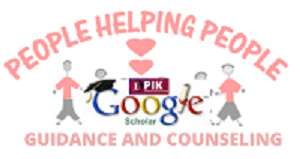TARGET Approach Through Virtual Bulletin To Increase Early Adult Achievement Motivation
DOI:
https://doi.org/10.37010/epik.v1i2.11356Keywords:
TARGET Approach, Virtual Newsletter, Acihievment MotivationAbstract
The industrial era 4.1 brought the will of technology and information that made almost all lines of life required to be able to adapt to changes. The adaptation required has also penetrated the world of education, the delivery of information that occurs between lecturers and students has now changed. In the past, the delivery of information only took place face-to-face, now it has varied. Various methods and media that can be chosen must be able to take advantage of technological advances as assistance in fostering student competence. This condition gives rise to the view that it is important to equip students with various knowledge and opportunities to be able to take advantage of various technologies and ease in accessing information. Virtual bulletins as a form of channeling student expression in the digital world according to their potential. The direction of the virtual bulletin with the TARGET approach (Tasks, Authority, Recognition, Grouping, Evaluation, Time / Ames 1992) to increase student achievement motivation in accordance with their potential as well as have a positive impact on their future career maturity. The strategy in the TARGET approach in the preparation of Virtual Bulletins with the target of early adulthood (FKIP UHAMKA BK students). Action Research is designed to increase student achievement motivation according to their potential.
Downloads
References
Ames, C. (1992). Classrooms: Goals, Structure, and Student Motivation. Journal of Educational Psychology, 84(3), p. 261–271 American Psychological Assosiation. www.unco.edu
Asni. (2021). Level of Student Stress Management UHAMKA Guidance Counseling Study Program in Pandemic Covid-19. 1st Annual International Conference on Natural and …, 2021.
Elliot, A.J & Dweck.S. Carol. (2005). Handbook of Competence and Motivation / foreword by Martin V. New York : The Guilford Press
Hajar, Siti. (2016). Disertasi Pengaruh Konseling Singkat Berbasis Solusi (Solution-Focused Brief Counseling/Sfbc) Terhadap Motivasi Berprestasi Olahraga. Bandung : UPI
Gefen D and Rindings, CM. (2017).Virtual Community Attraction: Why People Hang out Online. ournal of Computer-Mediated Communication, Volume 10, Issue 1, 1Virtual Community Attraction: Why People Hang out Online | Journal of Computer-Mediated Communication | Oxford Academic (oup.com)
R Marsinun, FN Ilahi. (2020). Analisis Work Motivation Pada Guru BK SMK Jakarta Timur Berdasarkan Gender. Raheema Jurnal Studi Gender dan Anak. Vo. 7(1). 1-8 https://scholar.google.co.id/citations?view_op=view_citation&hl=en&user=TXg9p_sAAAAJ&citation_for_view=TXg9p_sAAAAJ:eQOLeE2rZwMC
R Marsinun, FN Ilahi. (2020). Kematangan Karier Pada Mahasiswa Bimbingan dan Konseling Tingkat Pertama di Universitas Prof DR Hamka Prociding Seminar Nasional PD ABKIN SUMSEL 2020, 1-4. Sumatera Selatan https://scholar.google.co.id/citations?view_op=view_citation&hl=en&user=TXg9p_sAAAAJ&citation_for_view=TXg9p_sAAAAJ:WF5omc3nYNoC
Tutar,et.al.(2011).The effects of employee empowerment on achievement motivation and the contextual performance of employees African Journal of Business Management Vol. 5(15), pp. 6318-6329










